IAEA Expert Lecture on Sterile Insect Technique
- Details
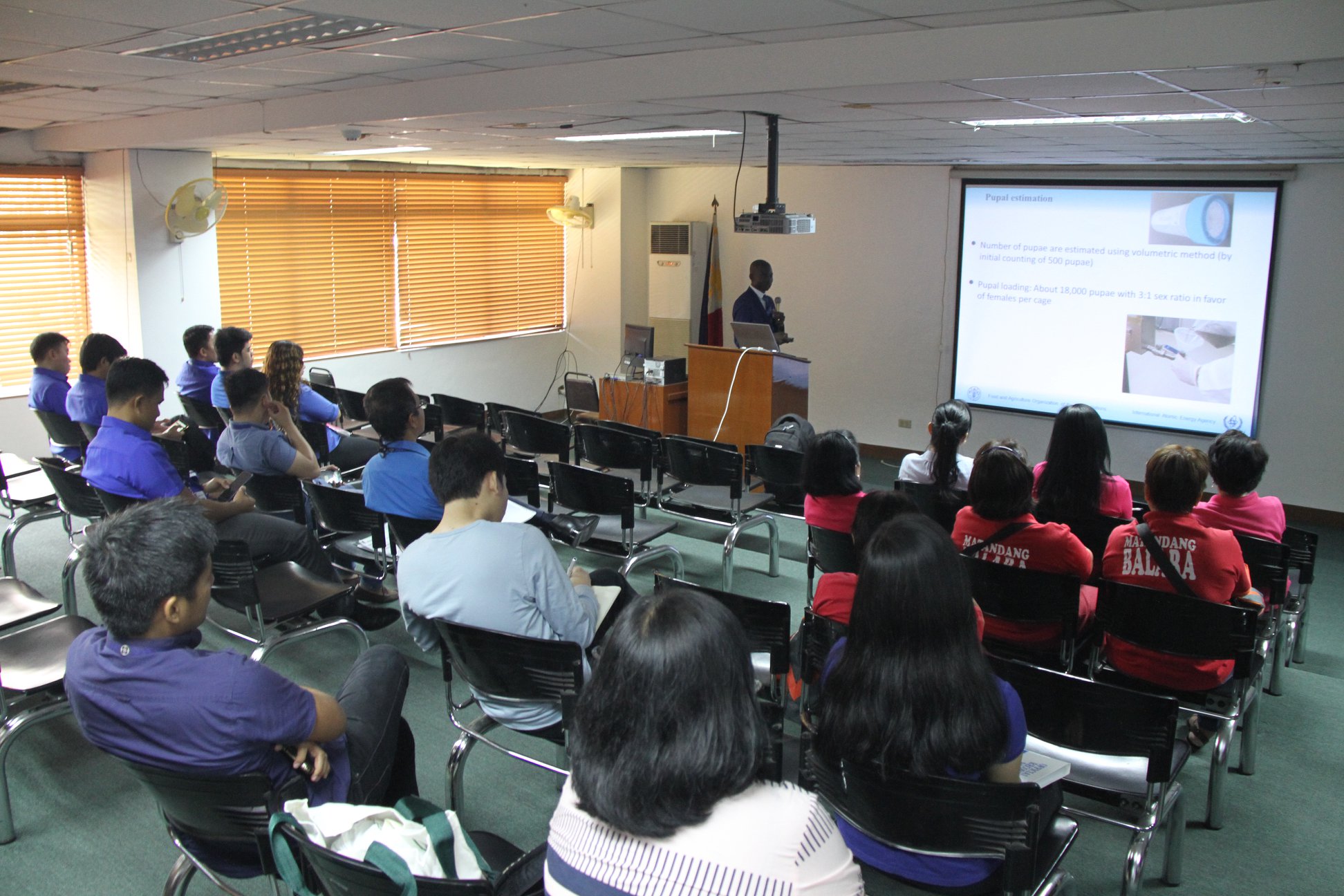
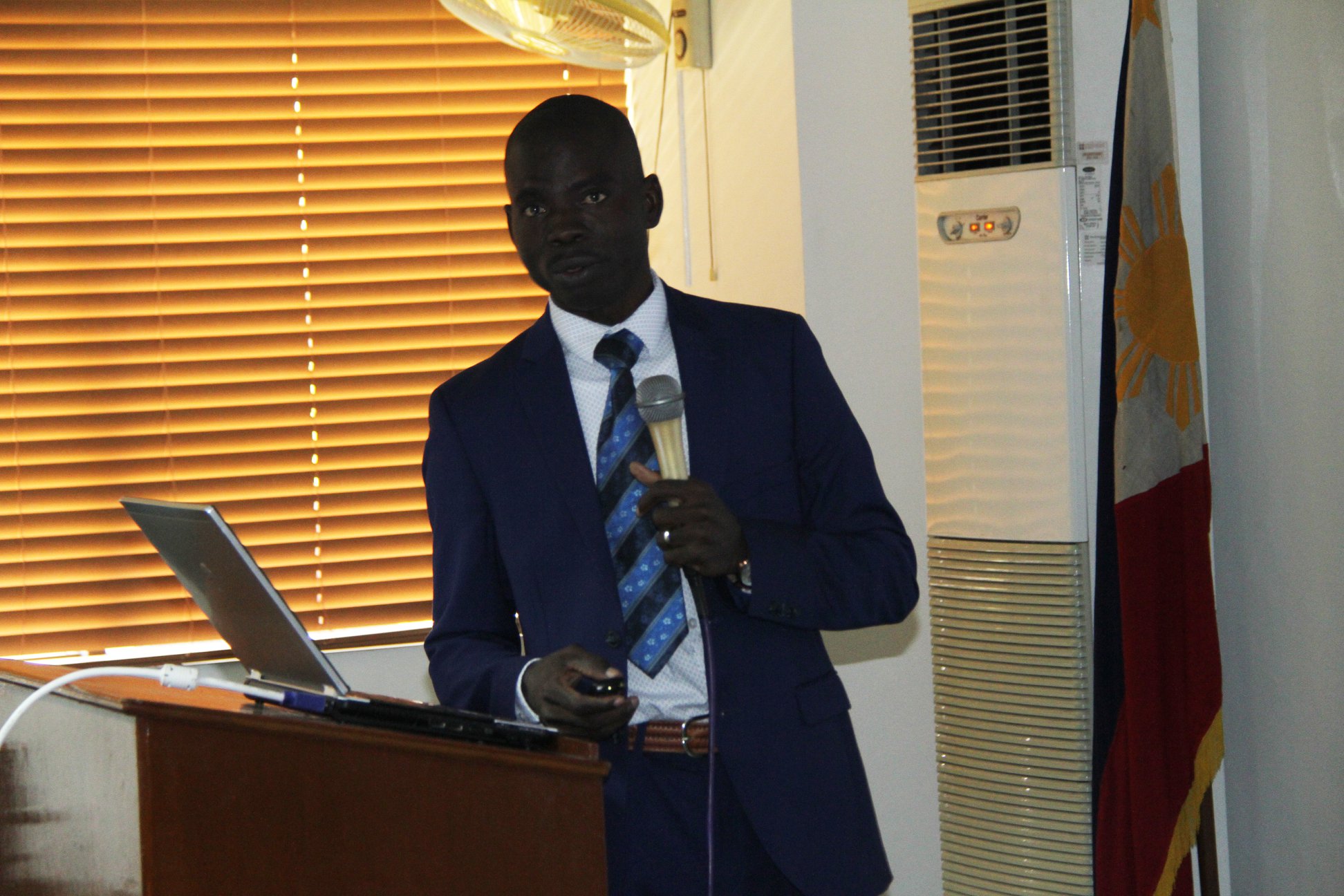
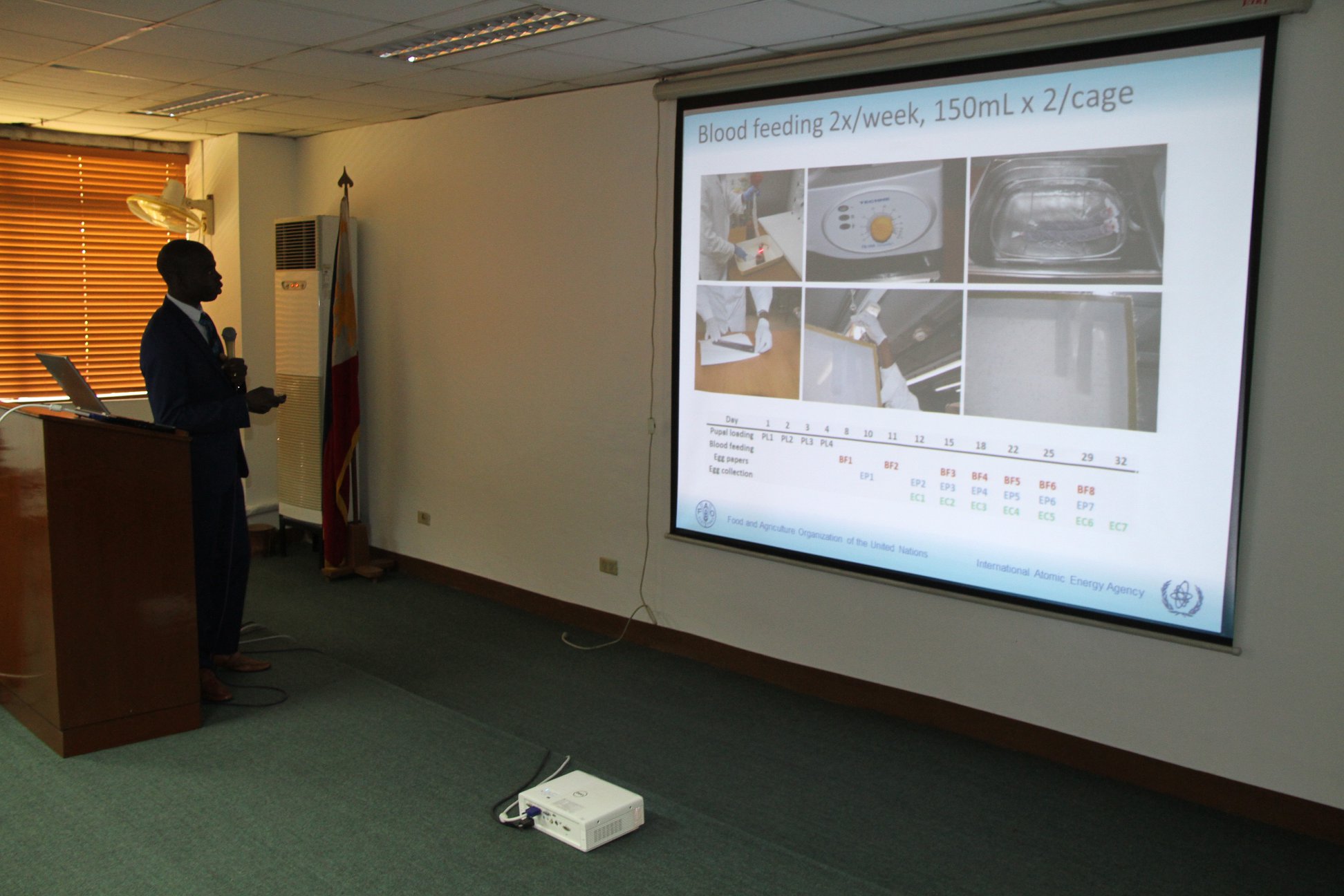
International Atomic Energy Agency expert Dr. Mamai Wadaka conducting his lecture on "Sterile Insect Techniques for Mosquitos: Latest Developments at Insect Pest Control Laboratory (IPCL)" at the PNRI compound in Diliman, Quezon City.
PNRI scientists are currently developing the Sterile Insect Technique to help mitigate the perennial dengue problem in the Philippines.
PNRI Information Officer Wins 2nd Place at DOST Bantog Media Awards
- Details
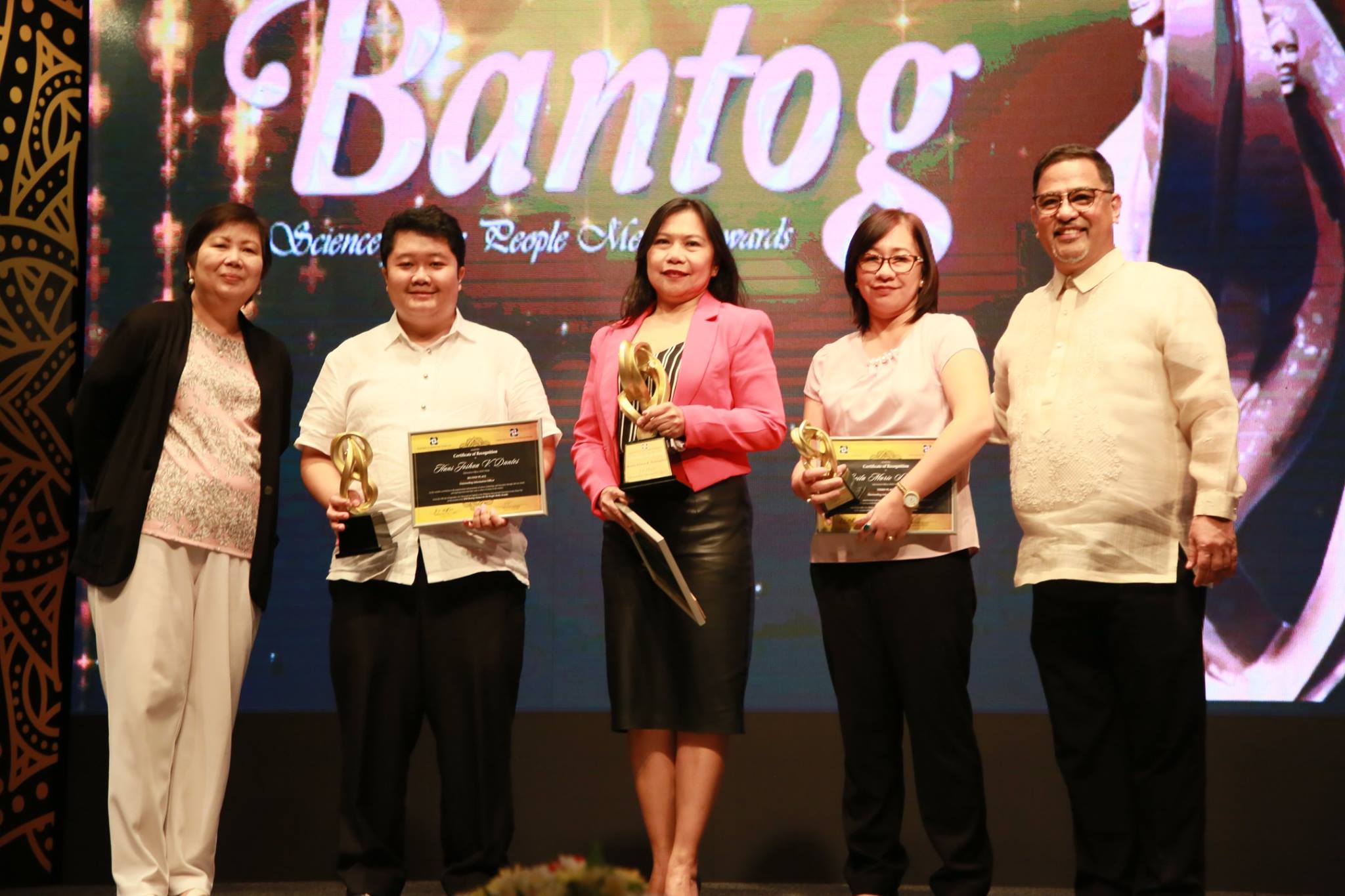
Congratulations to PNRI Information Officer Mr. Hans Joshua V. Dantes (2nd from left) for bagging the 2nd place in the 1st BANTOG - the Science for the People Media Awards - DOST Information Officers Category.
Organized by the Department of Science and Technology - Science and Technology Information Institute (DOST-STII), the Bantog Media Awards recognizes the contribution of media practitioners and communicators, both for traditional and online media, in promoting science and technology to the general public. The Outstanding Information Officer Award is given to exemplary DOST information officers involved in communication production and dissemination.
The awards were held on September 28, 2018 at the Philippine International Convention Center, with the presence of DOST-STII Director Richard Burgos (extreme right).
Density Gauge with Radioactive Materials Reported Missing
- Details
Density Gauge with Radioactive Materials Reported Missing
A moisture density gauge equipment containing radioactive materials was reported missing a month ago at around the area of the MWSS Compound storage facility in Bigte, Norzagaray, Bulacan.
According to the Department of Science and Technology – Philippine Nuclear Research Institute (DOST – PNRI), the equipment was reported missing by a licensee, which has reported the incident to the Norzagaray municipal police station. DOST – PNRI is the the agency mandated to license and regulate the use of radioactive materials in industry, medicine, academe, research, and other applications.
DOST – PNRI has then notified the Philippine National Police and the Office of Civil Defense of the incident and has requested for assistance in the search and recovery of the missing equipment.
The missing equipment is a TROXLER 3440 moisture density gauge, which is used by the PNRI licensee, an industrial firm, for testing of soil, asphalt and concrete materials. The equipment weighs around 41 kg, which is contained in a transport ‘orange-colored’ box measuring 30 x 14 x 17 inches. The gauge looks similar to the photos below:
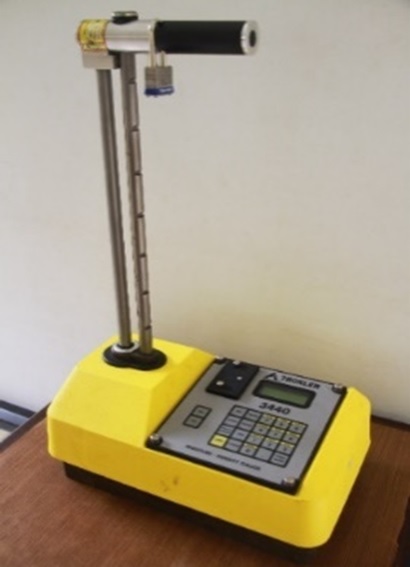
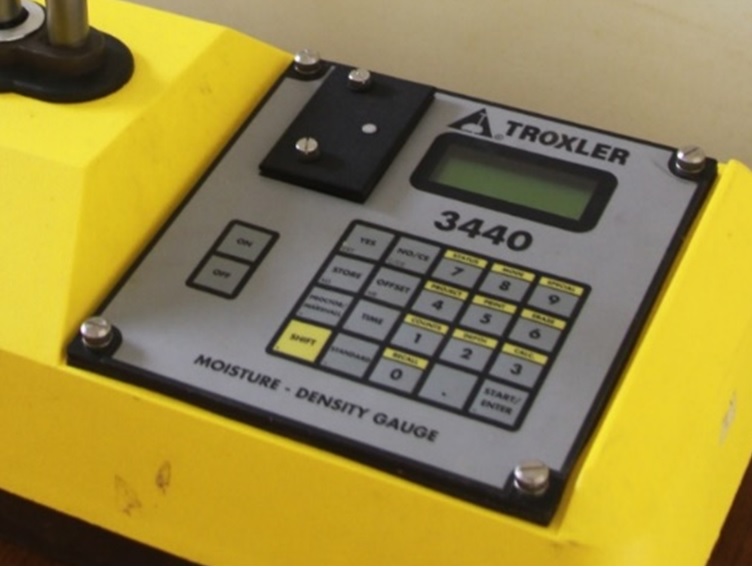
The public is advised on the following:
- The moisture density gauge is fully shielded, and is safe as it is. However, the equipment is potentially dangerous as it contains radioactive materials that emit high levels of ionizing radiation. If found, do not open the unit or tamper with its housing to avoid exposure to harmful radiation rays.
- Attached to the transport containment and on the equipment is the radiation symbol that looks like below. If you see the radiation symbol, keep away from the equipment.
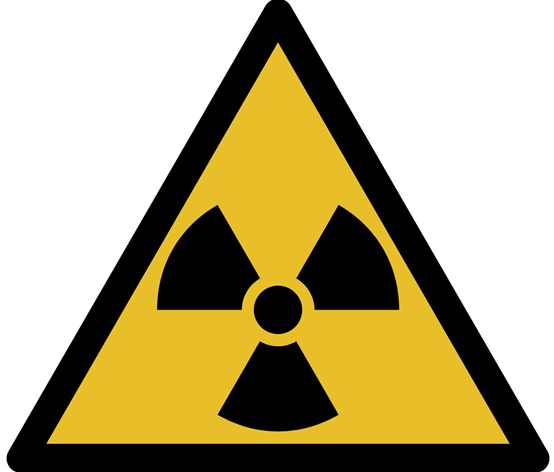
- Those who may have seen, touched or have been near to the equipment should immediately report to the nearest police station, and contact the DOST-PNRI as soon as possible through:
Mr. Teofilo V. Leonin Jr.
Chief, Nuclear Regulatory Division
DOST – Philippine Nuclear Research Institute
Telephone: 9208796, 9296011 Local 244
Mobile: (0915) 1946085
E-Mail: This email address is being protected from spambots. You need JavaScript enabled to view it.
Website: www.pnri.dost.gov.ph
- Scrap metal dealers and buyers of used metal items are asked to be on alert.
- Medical practitioners are advised of the possibility that patients may appear with symptoms of radiation exposure.
Further information will be provided as soon as it becomes available.
For further information, please contact:
Dr. Soledad S. Castañeda
Deputy Director
DOST – Philippine Nuclear Research Institute
Telephone: 9208741, 9296011 Local 222
Mobile: (0943) 5364863
E-Mail: This email address is being protected from spambots. You need JavaScript enabled to view it.
Website: www.pnri.dost.gov.ph
House Committee on Appropriations Approves Comprehensive Nuclear Law
- Details
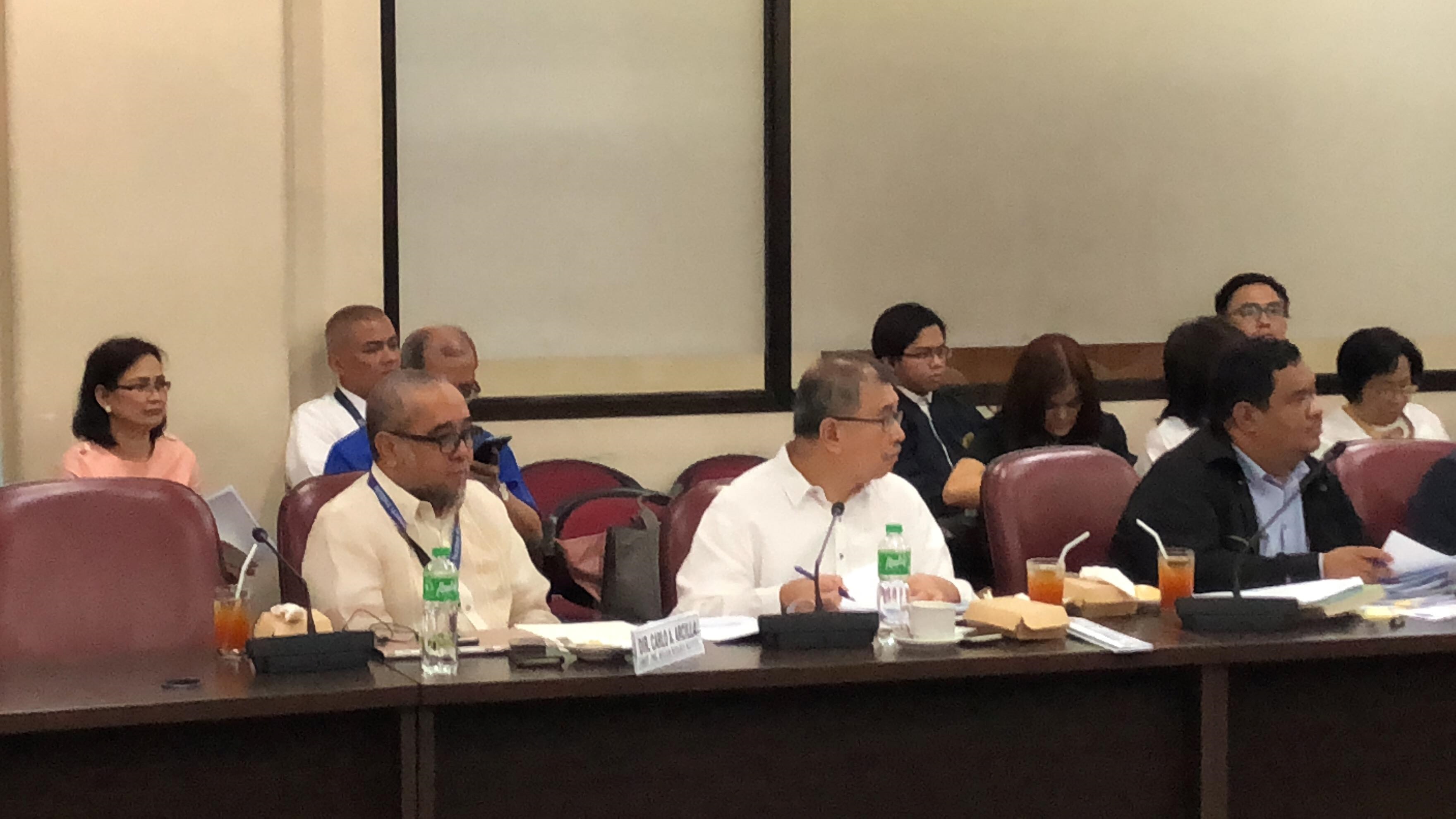

Department of Science and Technology (DOST) Secretary Fortunato De La Peña and Philippine Nuclear Research Institute (PNRI) Director Dr. Carlo Arcilla (top photo, middle and left, respectively) during the meeting of the House of Representatives Committee on Appropriations (bottom photo).
House Committee on Appropriations Approves Comprehensive Nuclear Law
Taking the key piece of legislation for nuclear regulations one step closer to enactment, the bill for the Comprehensive Nuclear Law was recently approved before the House Committee on Appropriations.
The bill hurdled through the appropriations committee at the House of Representatives during its meeting on August 28, 2018.
The bill, entitled “An Act Providing for a Comprehensive Nuclear Regulatory Framework, Creating for the Purpose, the Philippine Nuclear Regulatory Commission, and Appropriating Funds Therefor”, otherwise known as the Comprehensive Nuclear Regulation Act, pushes for the creation of a unified independent regulatory body consistent with international standards for the regulation of all practices and facilities involving sources of ionizing radiation, including nuclear and other radioactive materials, facilities and radiation generating equipment.
Its current incarnation in the House of Representatives was previously consolidated from several other bills into a substitute bill in November 2017, with former President and current House Speaker Gloria Macapagal Arroyo as one of its sponsors.
In the Senate, a counterpart bill for the nuclear law is currently filed by Senate President Vicente “Tito” Sotto III.
DOST Secretary Fortunato De La Peña and PNRI Director Dr. Carlo Arcilla were present during the committee meeting along with other officials and staff from DOST and PNRI.
Currently, the Philippines has two regulatory bodies dealing with ionizing radiation: the Philippine Nuclear Research Institute (PNRI) under the Department of Science and Technology (DOST) which regulates nuclear and radioactive materials, and the Center for Device Regulation, Radiation Health and Research (CDRRHR) under the Food and Drug Administration (FDA) of the Department of Health (DOH), which regulates x-rays and devices producing electrically-generated radiation.












































